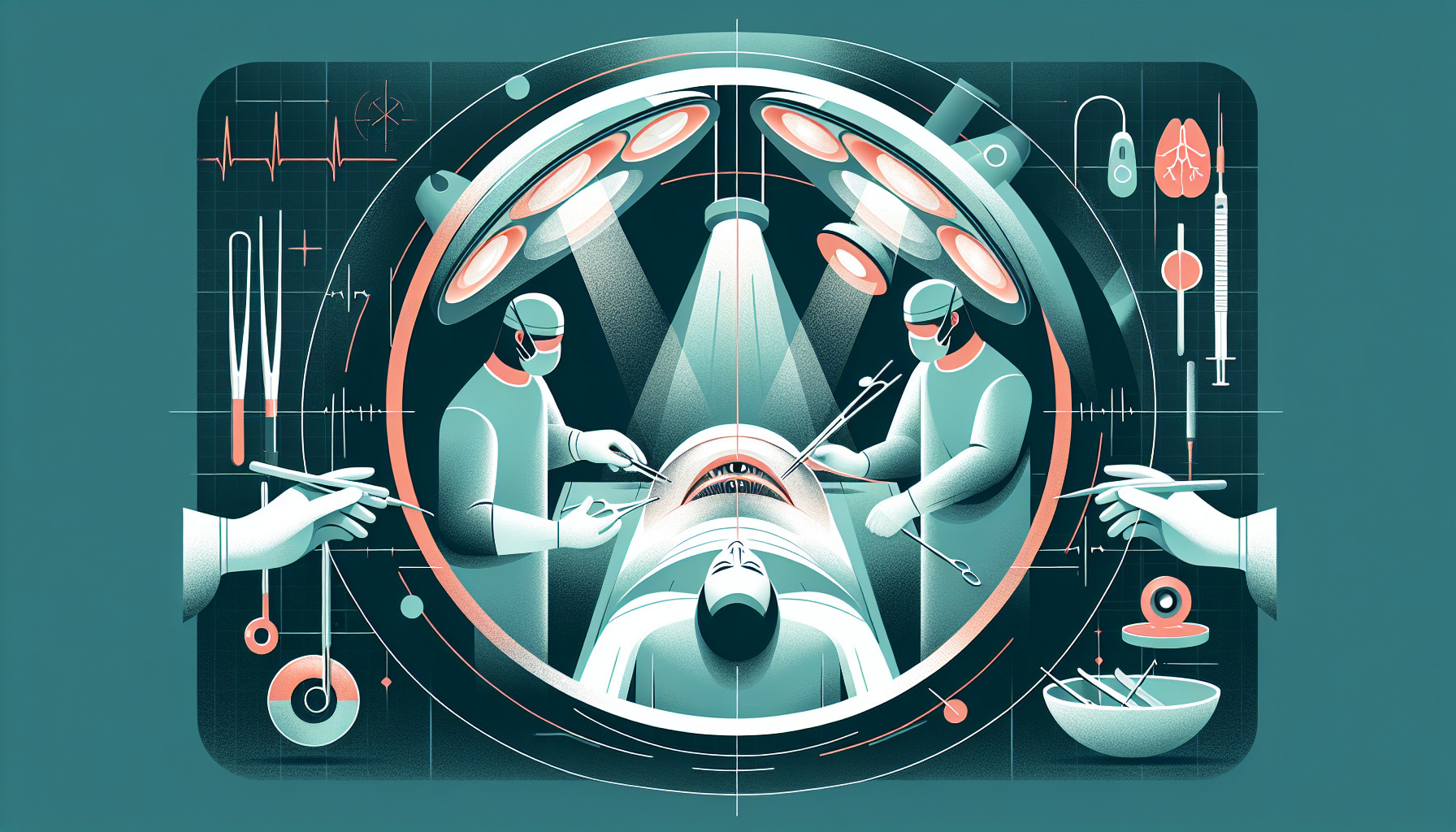Our Summary
This research paper is about a study conducted on 33 patients who underwent a common eye surgery procedure called Manual Small-Incision Cataract Surgery (MSICS). The researchers were interested in understanding the comfort of the patients and their cooperation during the surgery when only a topical anesthetic (proparacaine 0.5% eye drops) was used, instead of the more traditional injection methods.
The results, based on a scale of 1 to 5, showed that patients were fairly comfortable during the surgery (average score of 3.45) and cooperated well (average score of 3.42). The researchers concluded that using only topical anesthetic can provide enough comfort for the patients and also avoid complications that may arise with injection methods. This method could be used in large-scale cataract surgeries to save resources, reduce complications, and speed up post-surgery recovery without compromising the success of the surgery.
FAQs
- What is Manual Small-Incision Cataract Surgery (MSICS)?
- How effective is topical anesthetic compared to traditional injection methods in ensuring patient comfort during cataract surgery?
- Can the use of topical anesthetics in cataract surgery potentially reduce complications and speed up recovery?
Doctor’s Tip
A helpful tip a doctor might tell a patient about cataract surgery is to follow all pre-operative instructions provided by the surgeon, such as avoiding eating or drinking before the surgery and taking any prescribed medications as directed. It is also important to have someone available to drive you home after the surgery and to attend all follow-up appointments. Additionally, it is important to protect your eyes from bright light and wear sunglasses as recommended by your doctor during the healing process.
Suitable For
Typically, patients who are recommended for cataract surgery are those who are experiencing vision problems due to cataracts. Cataracts are a common age-related condition where the lens of the eye becomes cloudy, causing blurry vision, difficulty seeing at night, sensitivity to light, and other vision problems.
Patients who have cataracts that are significantly impacting their daily activities, such as driving, reading, or watching TV, are usually recommended for surgery. Additionally, patients with cataracts that are affecting their quality of life or causing other health issues may also be recommended for surgery.
It is important for patients to undergo a comprehensive eye examination with an ophthalmologist to determine if cataract surgery is the best course of action for their individual case. The decision to undergo surgery should be made in consultation with a healthcare provider based on the patient’s specific needs and overall health.
Timeline
Before cataract surgery:
- Patient experiences blurry vision, glare, and difficulty seeing in low light.
- Patient consults with an eye doctor to discuss treatment options.
- Eye doctor determines that cataract surgery is necessary and schedules the procedure.
- Patient undergoes pre-operative testing and evaluation to ensure they are a good candidate for surgery.
After cataract surgery:
- Patient is given post-operative instructions, including the use of eye drops and restrictions on activities.
- Patient may experience mild discomfort and blurry vision immediately after surgery.
- Patient attends follow-up appointments to monitor healing and check for any complications.
- Vision gradually improves over the following weeks as the eye heals and the cataract is replaced with an artificial lens.
- Patient may need new glasses or contact lenses to achieve optimal vision after surgery.
What to Ask Your Doctor
What are the potential risks and complications associated with cataract surgery using only topical anesthesia?
How does using only topical anesthesia compare to traditional injection methods in terms of pain management during and after the surgery?
What is the success rate of cataract surgery using only topical anesthesia compared to traditional methods?
How long does the recovery process typically take for patients who undergo cataract surgery with only topical anesthesia?
Are there any specific precautions or post-operative care instructions that I should be aware of if I choose to undergo cataract surgery with only topical anesthesia?
How experienced is the surgeon in performing cataract surgery using only topical anesthesia, and what is their success rate with this method?
Will I be able to see clearly immediately after the surgery, or will there be a period of adjustment or recovery before my vision improves?
Are there any additional costs associated with choosing to have cataract surgery with only topical anesthesia, compared to traditional methods?
How many cataract surgeries have been performed using only topical anesthesia at this facility, and what has been the overall patient satisfaction rate with this method?
Are there any specific factors about my eye health or medical history that may make me a better or worse candidate for cataract surgery with only topical anesthesia?
Reference
Authors: Tumbadi KL, Nagaraj KB, Mathew A, Devegowda SY, Hemalatha BC. Journal: Indian J Ophthalmol. 2022 Nov;70(11):4026-4028. doi: 10.4103/ijo.IJO_1742_22. PMID: 36308149
